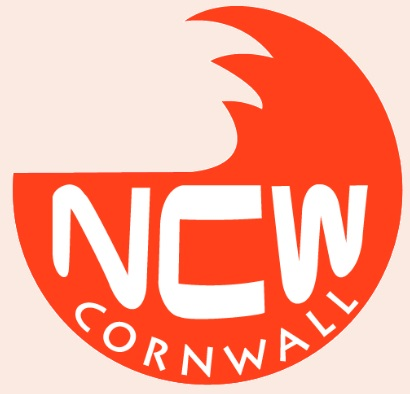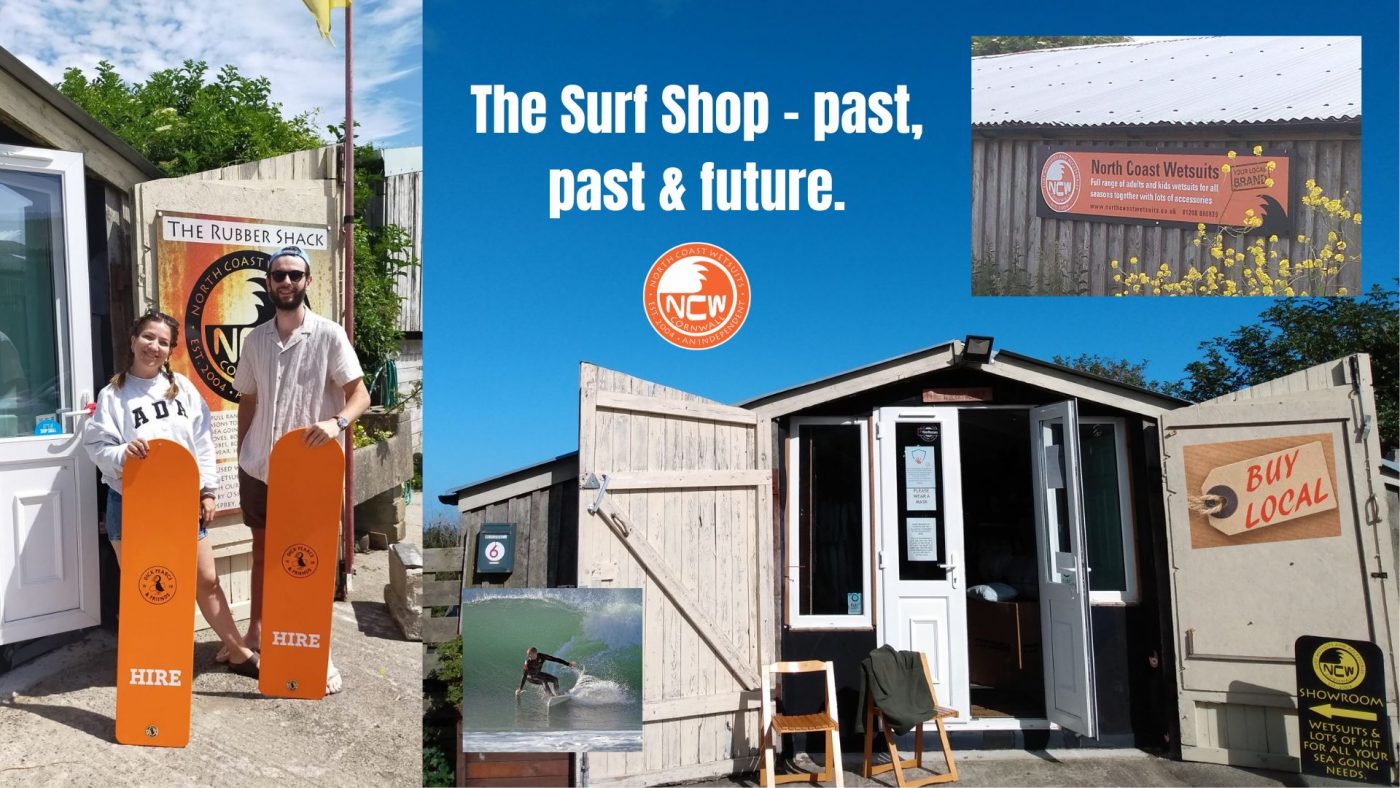The surf shop has been a part of the surfing landscape for nearly as long as surfing itself. At least the modern incarnation of surfing that is. There have been plenty of headline surf shop names that any wave rider worth their salt will recall. The Hobie Shop, Dana Point, CA as well as Ron Jon Surf Shop, Cocoa Beach, FL (which is still touted as the biggest surf shop in the world).
It’s not just across the pond where surf shops have found fame though. Here in Blighty, there are also plenty. Some old, some new, some forgotten and some blue. For sure, in 2023, surf shops aren’t quite the same as they once were. Well, at least most aren’t. In this day and age that familiar surfing emporium is all polished, shiny and sparkly. The emphasis is on a spangly look, rather than the grungey, hippy, vibey bricks and mortar places of before. Although some do buck this trend…
A little surf shop history.
The original surf shops of the 50s were very minimalist, Usually compromising of a wooden counter, a few finished boards leaning against the wall with a shaping bay out back. This was the main focus of surf shops then. Front of house was merely an add on. The magic happened among the foam, resin and fibreglass.
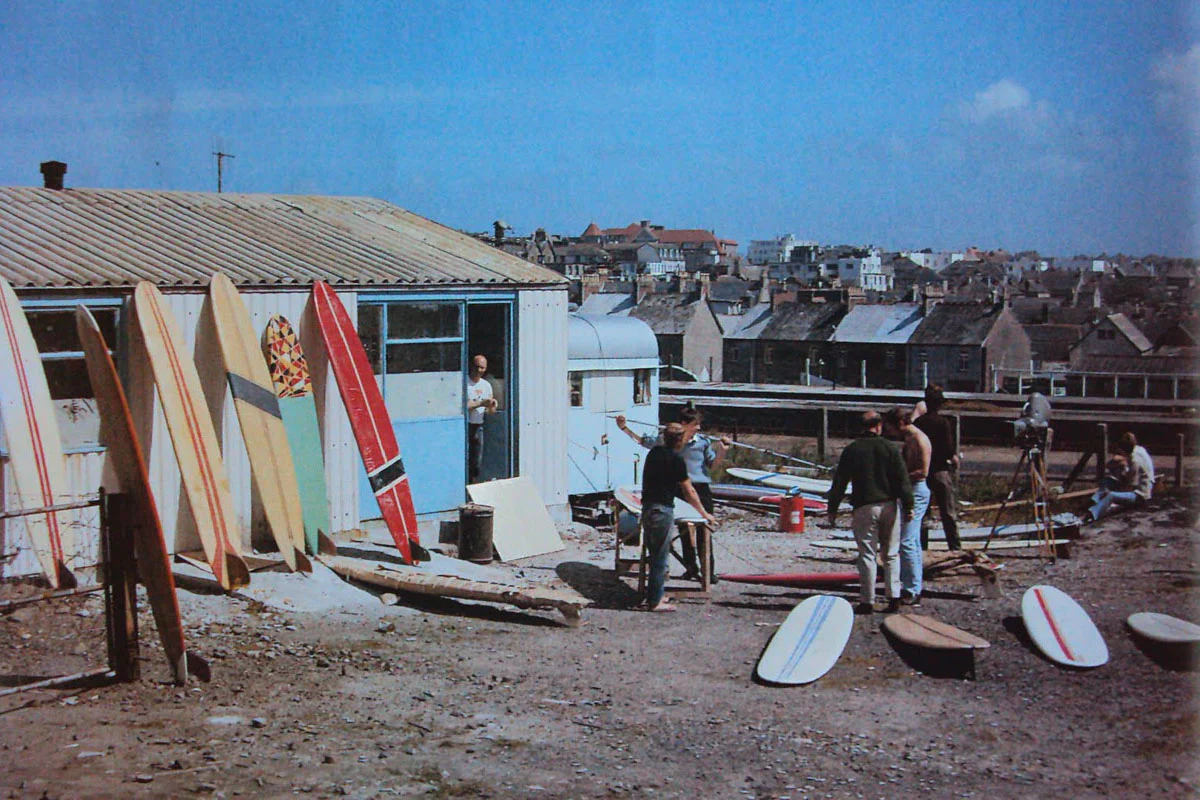
By the 60s this had all changed amidst the economic boom that was happening. Things smartened up as owners and investors realised there was money to be made from selling the surfing dream. As such cheesy catchphrases hung in the windows ala ‘gone surfing’ between the boards and wax. Although to service the needs of customers and behave like a proper business normal opening times were advertised and staff were always on hand – even if that meant nipping out for a wave on a rota system.
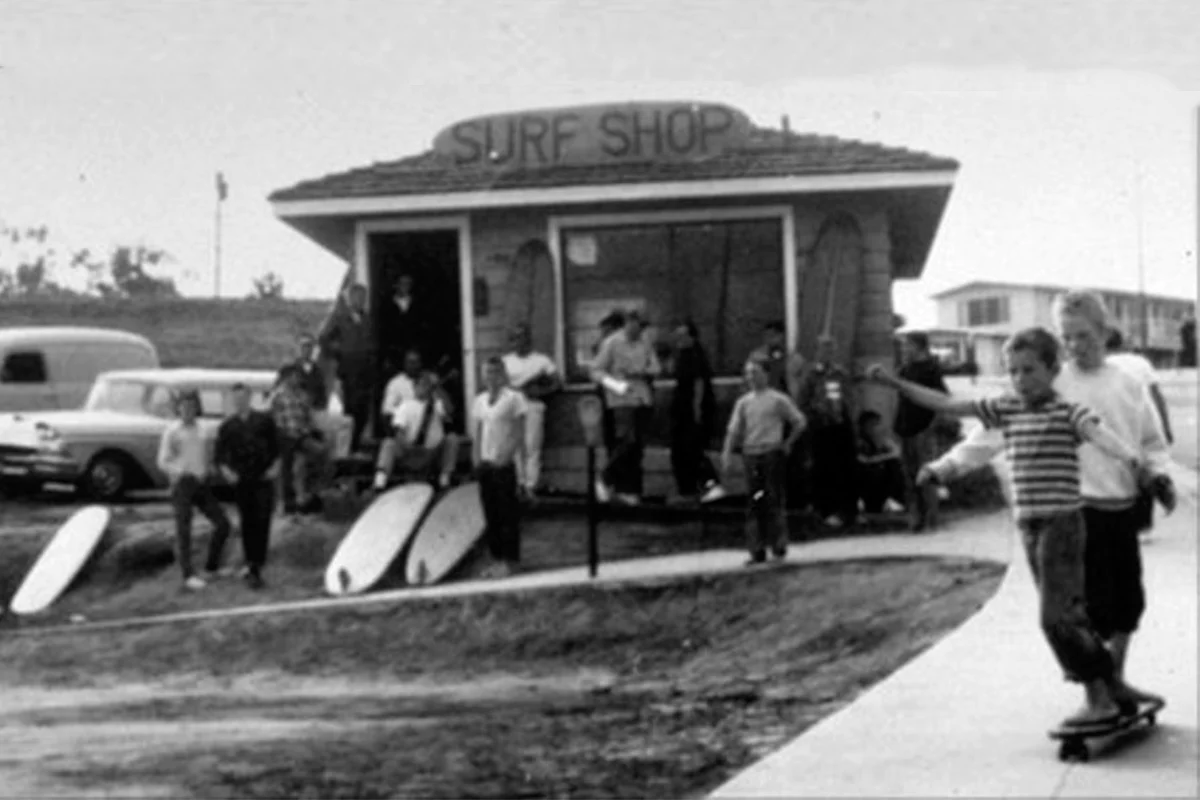
Surf shops still attracted the hardcore local crew though. Come weekends groms would hang about gawping at new ‘toys’ if the waves were flat. The older crowd would stand and chat board design and contemplate their next sled. Surf shops were a hub and focal point that served the local scene and helped cultivate the surfing lifestyle further.
Early UK surf shops.
In 1963, Keith Slocombe began what is thought to be the oldest surf shop in England. It occupied a spot in The Digey area of St. Ives and was in operation eight years before Piran Surf was – another vintage surfing emporium.
Bilbo Surfboards, meanwhile, started to take shape in Newquay in 1963. Not so much a bona fide surf shop Bilbo was more about ‘constructing the finest surfboards’ from a garage. None the less Bill Bailey, Bob Head, Doug Wilson and Freddy Blight all decided to join forces and start a surfboard shaping business and shop proper. Named by combining both Bob and Bill’s first names Bilbo is an integral part of British surfing history.
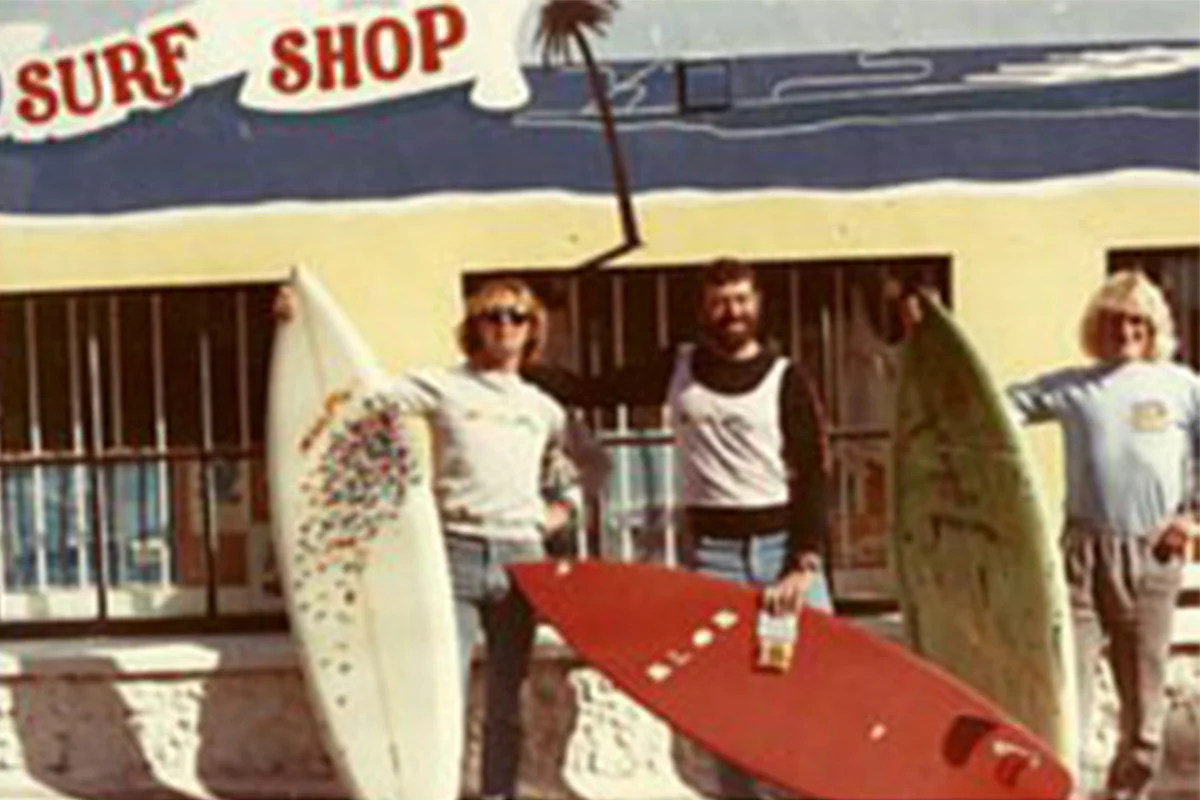
The aforementioned Piran Surf, based in Perranporth, then followed in 1971. Owned and run by John Heath, until 2006 when he retired and passed it on to new owners. Piran Surf is still in its spot overlooking Perranporth Beach and caters for all comers.
The surf shop follow on.
Needless to say, with all this entrepreneurialism, more and more surf shops started to spring up. There was a raft of shops dedicated to the cause in and around Cornwall – especially the bigger surf towns like Newquay. And gradually, over time, these spread even further.
Back in the midst of time, way before the internet, surf shops were the only place to acquire the latest boards, clothes, accessories and peripherals, and as print media developed surf mags too. Just as with the USA surf shops in Blighty became meeting points, hang out spots and social clubs. Riders had their favourites, which sometimes equated to a tribal vibe based on geographical location and closest proximity to the rider’s chosen surf break.
The 80s and 90s.
Surf shops during the 80s and 90s started to become ever more polished and refined. Taking cues from the high street merchandising and showing off products in a better light started to grab hold. Where once a board leaned against a wall now they occupied racks and were adorned with all kinds of colourful tags and writings designed to lure in the prospective buyer.
Creating the right ambience, through the use of music, fragrance (surf wax scented candles as one example) and being on topic with everything in the shop were given precedence. Some surf shops shunned this to some extent, favouring the more grassroots style surf shop. But even these too needed to shift products as costs began getting more expensive. At one point there was a definite line in the sand where on one side ‘real’ surf shops resided whilst on the opposite side pseudo shops existed.
More blurred lines.
Surfing has always held appeal for marketing bodies wanting to piggyback on the sport’s image. But as surfing and surf shops grew, it wasn’t long before high street retailers started selling surf gear. Not so much surfboards, instead the big money was seen to be had via clothing.
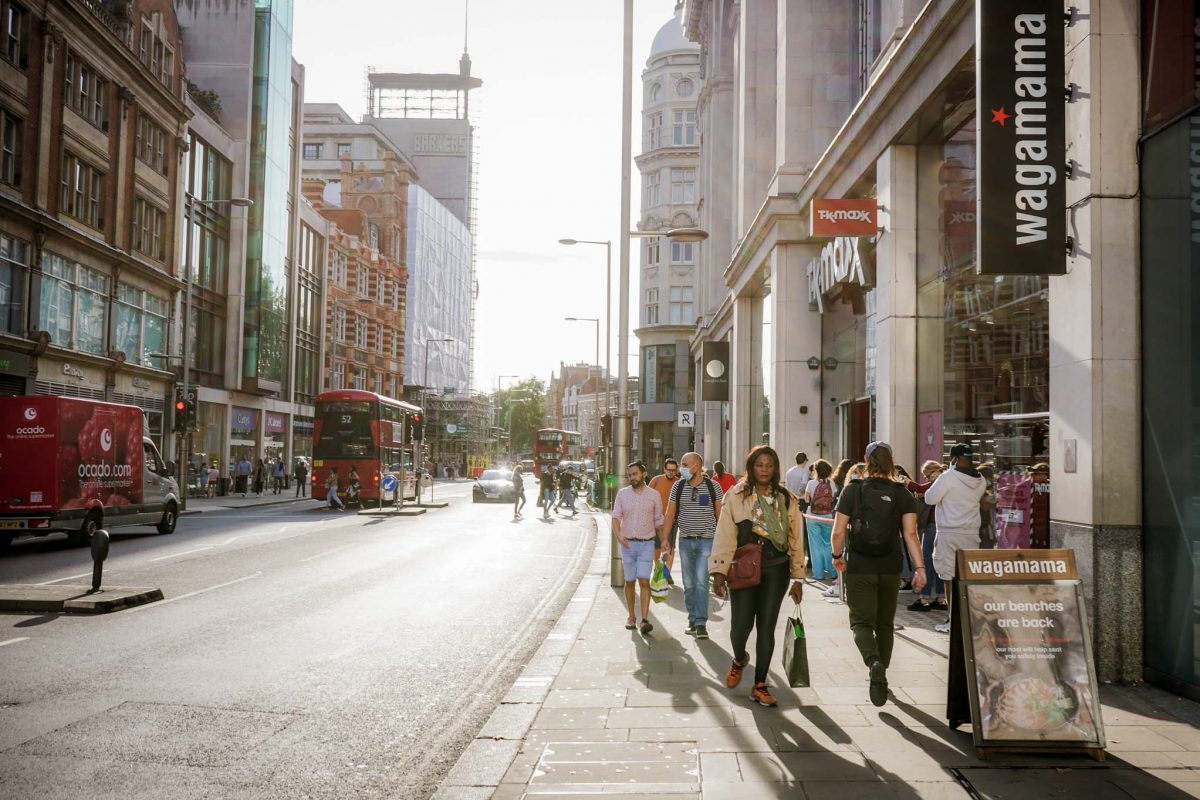
Wearing your favourite surf brand’s logo was always a way to affiliate yourself with your board riding passion. Unfortunately, some surf brands began making deals with high street retailers which put them at odds with their core market. Surfers being the anti establishment types they perceived themselves to be would shun some of these brands describing them as sellouts. It was now possible for anyone liking the look of surfing to get hold of the tee shirt and walk about town whilst wearing it. The person in question might never have been anywhere near the ocean yet they wanted a slice of the pie and surfing’s cool.’
The surf shop today (2023).
In 2023 you’ll actually be hard pushed to find a surf shop echoing how things once were. For sure, there are retailers who do a great job of keeping things real. There are also just as many outlets masquerading as surf shops. They may be selling the gear but it doesn’t mean they know the sport. As the old saying goes: ‘only a surfer knows…’ and all that. This may sound elitist but it’s true. You can only know surfing if you actually surf.
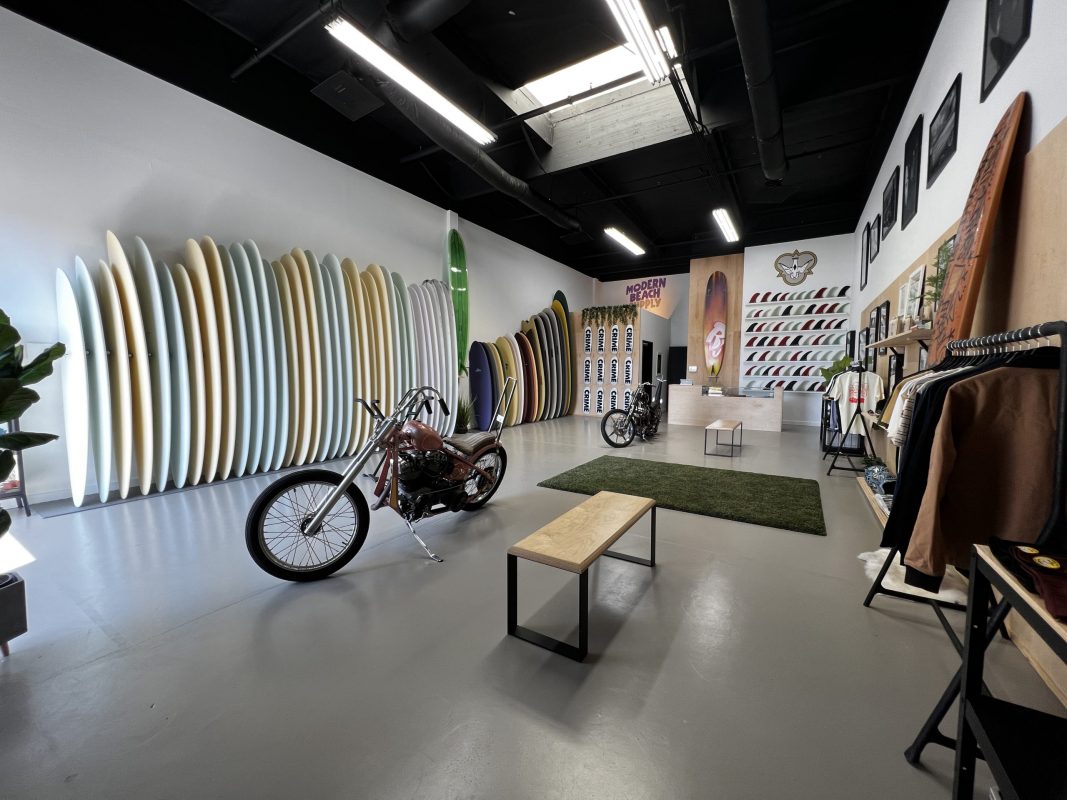
The fact is, anyone in business needs to sell gear. The times we live in mean money is king (we’re sorry to say). That’s not that you won’t get great advice, equipment and a brilliant experience at a genuine proper surf shop. You definitely will! But long gone is the crusty, dusty bare bones surf shop of yesteryear. Mostly.
Every now and again…
Every so often a surf shop pops up that echoes the good old days, but with a modern approach. Friends of NCW, Steveo and his wife, recently opened the House of Fringe in Newquay. This is a very different kind of surf shop that aims to give great advice, provide awesome products and have customers enjoying the best time. Surfboards, yes, but Steveo isn’t afraid to showcase those fringe surfing activities – like matt surfing for instance – as well. (Check out the Real UK Surf Show episode below where the hosts chat to Steve).
Here at North Coast Wetsuits, we think of ourselves in the same niche. As with everybody else, we’re definitely a business. But we’re also in it for the right reasons we feel. And our whole ethos and vibe correlates with surfers. As much as anything because we surf and spend time around the beach/ocean and outdoors in general.
The North Coast Wetsuits story.
Following a life changing accident, NCW owner Mark and wife Laura moved to Cornwall for a complete change. Mark immersed himself in his surfing and soon after NCW was born (2004). With a commitment to designing quality products, fit for purpose, but without breaking the bank NCW has gained a reputation for being a great UK, homegrown wetsuit and wetsuit accessories retailer.
As with everything NCW has evolved over the years and now encompasses many things water. We still love and support UK surfing but we appreciate the wider scope of watersports and the many ways people want to get wet. As such we talk about various disciplines across our product listings. But we do so with expertise. At any given time we can call on those we surround ourselves with to give quality, informed advice about a variety of gear for different activities. We pride ourselves on customer service and helping customers. And we also pride ourselves on knowledge within the industry we work.
The NCW vibe.
NCW’s The Rubber Shack sits on the brow of hill, within a farmer’s yard, surrounded by green fields, livestock, big skies and amazing views across the Atlantic Ocean. Looking left and right you can view prime Cornish surfing real estate. You can sniff the salt in the air and feel the pull towards the water.
The Rubber Shack is a modest outbuilding that has the whiff of surf wax and rubber (and cows! this is agricultural land after all). Entering through the front doors you’re confronted by an array of kit in the form of wetsuits, wetsuit accessories, boards, paddles and a whole load of other good stuff. There’s no pretension. Dogs are welcome, as are muddy feet. Browsing is easy and there’s always someone on hand to help you with any queries. In the house we have our own neoprene seamstress who can alter, repair and tweak any wetsuit product you may feel needs a change. We strive to be as eco friendly and green as possible. And all whilst remaining super chilled out and approachable. Keeping the traditional surf shop scene in mind we feel NCW is as close to this whilst remaining modern too. As such, we’re real, genuine and bona fide. Find out more via our FAQs page here.
Why not visit us?
We appreciate how experience is everything. This is why we fling down an open invite for anybody in the area to come and visit us at The Rubber Shack. If you’re looking for a genuine surf shop then seek no further. If you’re on holiday why not pop by? Locals are also welcome.
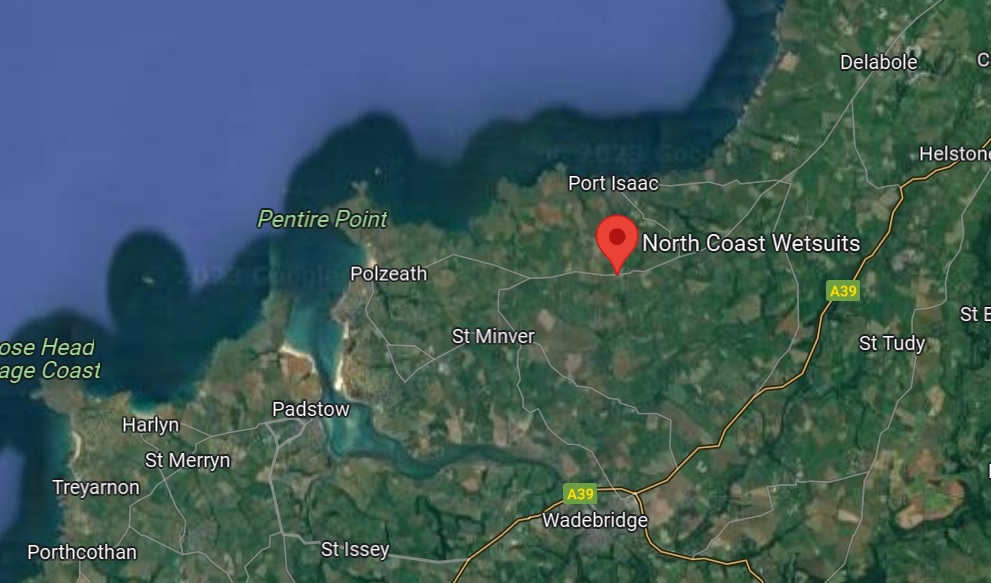
From this, we’re sure you’ll be suitably frothing to hit one of the local surf spots and use your new NCW toy – whatever that may be. Next time you’re thinking about the real deal surf shop experience remember North Coast Wetsuits. You’ll be glad you did!
You can find out more about NCW here. If you’re looking for directions to The Rubber Shack then find those via this link. For all other queries give us a call.
